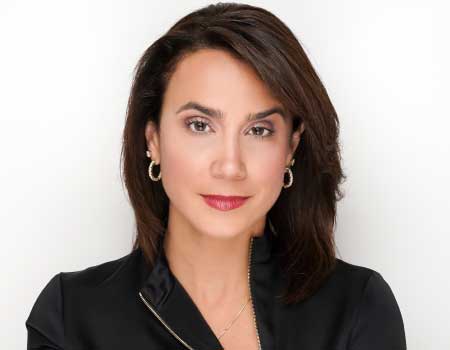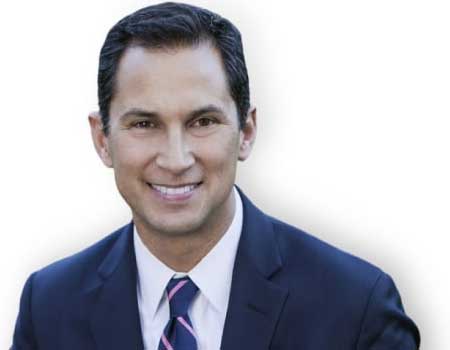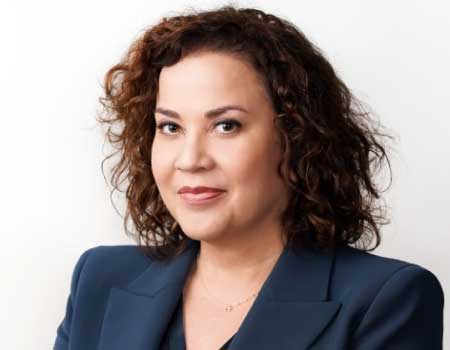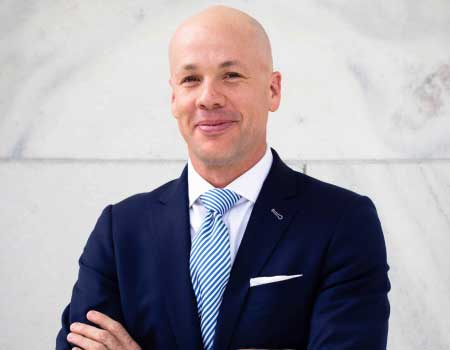Bloomberg Government
Ferox Principal Cristina Antelo was featured in the Bloomberg Government article, “When Lobbyists’ Rise Reflects Increasingly Diverse Capitol Hill.”
As a Latina, Antelo said she has long focused on the members of the Congressional Hispanic Caucus but lobbies all of Congress. She said the increase in women lawmakers over the years has made them a power center on Capitol Hill. “Watching their numbers grow and understanding their power has been amazing,” she said.
Check out the full article below.
When Lobbyists’ Rise Reflects Increasingly Diverse Capitol Hill
By: Kate Ackley
March 8, 2024
- K Street networking for women and women of color has boomed
- Shift leads to strides addressing sexual harassment complaints
When Nicole Venable, a former congressional aide, became a lobbyist two decades ago, she sought out an informal network of a few other Black women in the business.
“We would call it the important meeting, so people would not know what it was on our schedule,” said Venable, now a lobbyist at Invariant, the largest woman-founded lobbying firm started by Heather Podesta.
Venable’s small gatherings grew into the Black Girl Magic Network, which now has an email list of 300 and hosts career development events, political and charity fundraisers, sessions with members of Congress, and shares information on job listings.
It is one of many networks for women in lobbying that have worked to boost their ranks and bring along a new generation. Over the past two decades, the number of women in lobbying has increased. The networking events, including some tied this month to International Women’s Day and Women’s History Month, have become more formalized, lobbyists said. Outside groups and party committees from both sides of the aisle have set up fundraising events focused on women donors.
“Over the last 27 years, I remember starting on the Hill and being excited when women lobbyists came in, they were able to give me advice,” said Tiffany Moore, senior vice president of political and industry affairs at the Consumer Technology Association, and a board member of the group GlobalWIN, or Global Women’s Innovation Network. “Today it’s much more intentional. It’s organized.”
That’s come as more women have gone into lobbying, as measured by LegiStorm data, which found that women accounted for almost 40% of registered lobbyists last year, up from 33 % in 2000.
“We are definitely seeing the numbers show us that there is a pretty substantial increase over the last 20-some years,” Keturah Hetrick, chief congressional researcher at LegiStorm. “But women represent a pretty clear minority of registered lobbyists still.”
Lobbyists who have been around for decades said they’d seen noticeable changes, especially when it comes to sexual harassment and gender discrimination on the Hill and on K Street in the post-Me Too era.
Tonya Saunders started on the Hill in 1990 and went into lobbying in the mid-1990s. Such harassment was rampant, she said. It still happens today, but there’s more awareness and formalized ways of reporting such problems, she said: “It’s a big step but so much more needs to be done.”
In a sign of change, former Rep. Tom Reed (R-N.Y.) resigned from Congress after an allegation of inappropriate conduct from a former lobbyist. (Reed publicly apologized for his actions, acknowledging he had caused her pain. Reed resigned from Congress and has become a lobbyist.)
The increase is not coincidental as more women have been elected to Congress. In the 107th Congress, women made up 14.2% of the House and Senate, according to LegiStorm, while women are 29.7% of the current Congress.
The number of women staffers on Capitol Hill has been fairly consistent in the past 20 years, LegiStorm found, but women’s share of the highest-level roles has increased, and congressional aides are more diverse. In 2017, 32% of congressional chiefs of staff were women, according to LegiStorm. This year, it’s 40%. This Congress, 74.9% of aides are White, while in the 107th Congress, 85.1% of aides were White, LegiStorm tabulated.
Capitol Hill Pipeline
Some women who served in Congress have gone to lobbying jobs, including former Sen. Blanche Lincoln (D-Ark.) and ex-Rep. Cheri Bustos (D-Ill.).
Shannon Finley, a founding partner of Capitol Counsel and a one-time senior political adviser to then-Sen. Max Baucus (D-Mont.), started lobbying in 2007 and recalls sitting in tax policy meetings where she was the only woman.
“Still happens today, but not nearly as often,” said Finley, who is Native American. “People from different communities can bring different perspectives which is always valuable to the process.”
Some of the women rising up the ranks on K Street worked for women who broke glass ceilings on Capitol Hill.
Arshi Siddiqui, a partner at Akin whose clients include the Business Roundtable and AT&T Services Inc., worked on the Hill for then-Speaker Nancy Pelosi (D-Calif.), the first woman to hold that gavel.
“This is a really exciting time for this new generation of women in Washington, the whole landscape has changed in a significant way,” Siddiqui said. “The pipeline is so critical, especially in the lobbying space. That experience, it just lays the foundation for career advancement.”
Though still a minority, women have taken on more high-level corporate and trade association roles. Suzanne P. Clark is president and CEO of the US Chamber of Commerce. Candida Wolff runs Citi’s global government affairs. Theresa Fariello is executive vice president of government affairs and global public policy at United Airlines, while Heather Wingate serves as senior vice president of government affairs for Delta Air Lines.
Jane Adams, who heads the Washington office of Johnson & Johnson, has been in corporate advocacy for 22 years. Women have made progress into top roles, she said.
“But we still have a ways to go,” she said.
‘Very Male, Very White’
Brittany Masalosalo, chief public policy officer at HP Inc., agreed that challenges remain.
“Washington is very male, very white and very old,” said Masalosalo, who is in Abu Dhabi this week for a summit tied to International Women’s Day organized by Forbes. “If you are a woman of color, under 50, trying to be influential, you do have a bit of a wall to break through.”
Tiffany McCullen Atwell, senior vice president for global government affairs at Ecolab, said she has taken on mentees from Venable’s Black Girl Magic Network. As diversity, equity and inclusion efforts have become more charged, “we need to double down and continue to do the work,” she said.
Jennifer Stewart, founder of Stewart Strategies & Solutions, said she never considered opening her own firm until her former colleague at Bryan Cave, Broderick Johnson, suggested it.
She said she talked with members of Congress, including Rep. Jim Clyburn (D-S.C.), before opening her firm in 2011. Her recent clients include Meta Platforms Inc., Microsoft Corp. and Comcast Corp. She’s involved in Black Girl Magic and offers guidance to other lobbyists, she said.
“For those of us who are in this position, much is expected, there is a role for each of us to play,” she said.
Looking Ahead
Cristina Antelo began her lobbying career at a law firm and ultimately started her own shop, Ferox Strategies. As a Latina, Antelo said she has long focused on members of the Congressional Hispanic Caucus but lobbies all of Congress. She said the increase in women lawmakers over those years has made them a power center on Capitol Hill. “Watching their numbers grow and watching them maneuver as a group and understanding their power has been amazing,” she said.
Yesenia Alvarado Henninger, president of Q Street, a professional association for LGBTQ people in lobbying and advocacy, said that in recent years, the group has worked to create “spaces specifically for women and gender expansive people to get to know each other and network.” The 20-year-old group’s membership is predominantly white gay men.
“Congress is just a much more traditional institution. When we see changes in Congress, that definitely leaks over into K Street in a really great way,” she said, noting that the most recent group of LGBTQ+ Victory Fund interns was all nonbinary people.
Stephanie Silverman, who started her shop Venn Strategies in 2001, said that at the time she found few role models of women who had started their own firms. One was Anne Wexler, a pioneer in the business, who died in 2009.
“The world is wide open for women in Washington but not enough for underrepresented people,” Silverman said. “I hope that the field continues to be open and welcoming to a more diverse universe. As my generation ages, the question is: What’s next and for whom?”
Read More


































